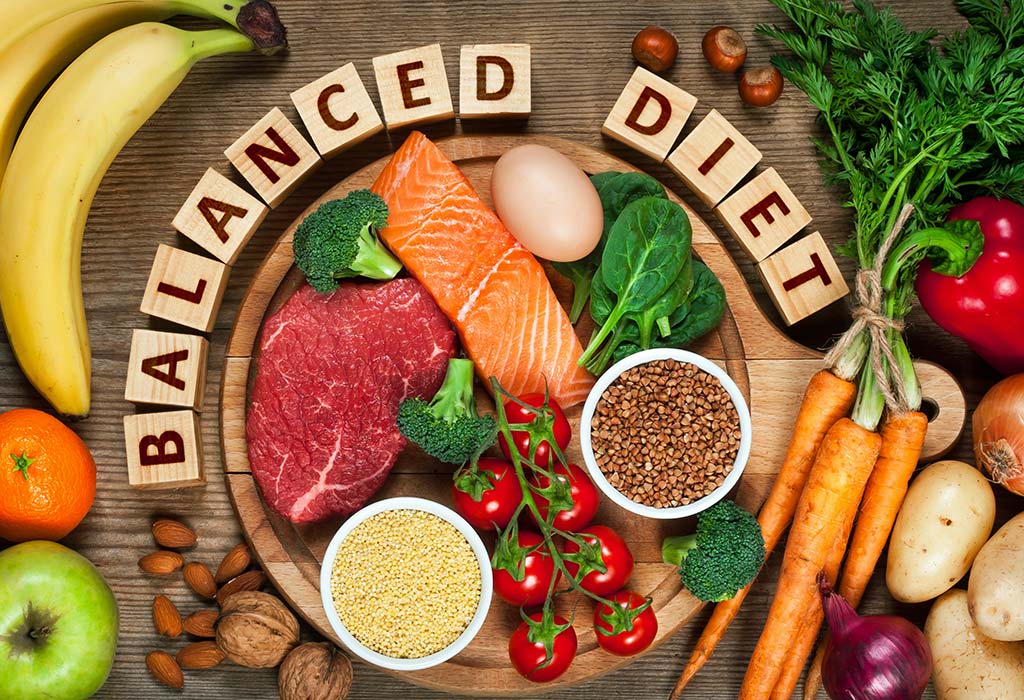
All humans have to eat food for growth and maintenance of a healthy body, but we humans have different nutrition requirements as infants, children (kids), teenagers, young adults, adults, and seniors. For example, infants may require feeding every 4 hours until they gradually age and begin to take in more solid foods. Eventually they develop into the more normal pattern of eating three times per day as young kids. However, as most parents know, kids, teenagers, and young adults often snack between meals. Snacking is often not limited to these age groups because adults and seniors often do the same.
Tips:
- Eat three healthy meals a day (breakfast, lunch, and dinner); it is important to remember that dinner does not have to be the largest meal.
- The bulk of food consumption should consist of healthy foods, such as fruits, vegetables, whole grains, and fat-free or low-fat milk products.
- Incorporate lean meats, poultry, fish, beans, eggs, and nuts (with emphasis on beans and nuts) into a healthy diet.
- Choose foods that are low in saturated fats, trans fats, cholesterol, salt (sodium), and added sugars; look at the labels because the first listed items on the labels comprise the highest concentrations of ingredients.
- Control portion sizes; eat the smallest portion that can satisfy hunger and then stop eating.
- Healthy snacks are OK in moderation and should consist of items like fruit, whole grains, or nuts to satisfy hunger and not cause excessive weight gain.
- Avoid sodas and sugar-enhanced drinks because of the excessive calories in the sodas and sugar drinks; diet drinks may not be a good choice as they make some people hungrier and increase food consumption.
- Avoid eating a large meal before sleeping to decrease gastroesophageal reflux and weight gain.
- If a person is angry or depressed, eating will not solve these situations and may make the underlying problems worse.
- Avoid rewarding children with sugary snacks; such a pattern may become a lifelong habit for people.
- Avoid heavy meals in the summer months, especially during hot days.
- A vegetarian lifestyle has been promoted for a healthy lifestyle and weight loss; vegetarians should check with their physicians to be sure they are getting enough vitamins, minerals, and iron in their diet.
- Cooking foods (above 165 F) destroys most harmful bacteria and other pathogens; if you choose to eat uncooked foods like fruits or vegetables, they should be thoroughly washed with running treated (safe to drink) tap water right before eating.
- Avoid eating raw or undercooked meats of any type.
Tips for special situations:
- People with diabetes should use the above tips and monitor their glucose levels as directed; try to keep the daily blood glucose levels as close to normal as possible.
- People with unusual work schedules (night shifts, college students, military) should try to adhere to a breakfast, lunch, and dinner routine with minimal snacking.
- People who prepare food should avoid using grease or frying foods in grease.
- People trying to lose weight (body fat) should avoid all fatty and sugary foods and eat mainly vegetables, fruits, and nuts and markedly reduce his/her intake of meat and dairy products.
- Seek medical advice early if you cannot control your weight, food intake, or if you have diabetes and cannot control your blood glucose levels.
Comments
Post a Comment